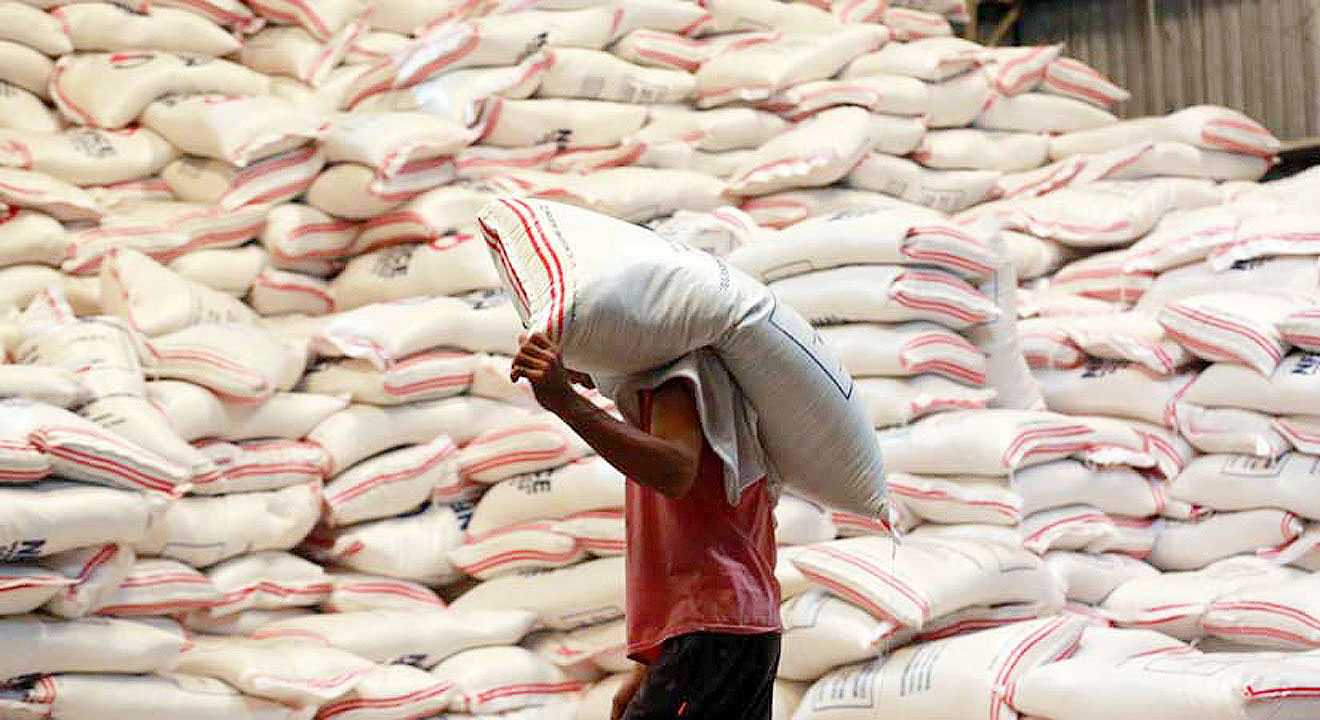
FORGONE government revenue from undervalued rice imports was estimated at about P7.5 billion, according to the Federation of Free Farmers (FFF).
The total was calculated from 3.2 million metric tons (MT) of imports, for which the Bureau of Customs (BoC) maintains reference prices, FFF National Manager Raul Q. Montemayor said in a statement Wednesday.
Mr. Montemayor added that undervalued rice imports have cost the government P25 billion since Republic Act 11203, or the Rice Tariffication Law (RTL), became effective in 2019.
He said that forgone revenue could have funded government aid to struggling rice farmers.
The law funds the Rice Competitiveness Enhancement Fund (RCEF), which is intended to modernize the rice industry. The law allowed private traders to bring in rice shipments without restriction while paying a 35% tariff on Southeast Asian grain.
The FFF noted that the declared costs for imported rice, excluding tariffs, were averaging P24.12 per kilogram in 2023.
“This was 22% lower than the BoC’s reference price of P30.78 per kilo. An additional P2.34 per kilo in tariffs could have been collected by the BoC if there was no undervaluation,” it said.
The FFF said that less than 4% of total imports came from non-ASEAN countries, “validating claims that the reduction in tariffs on non-ASEAN rice imports has not succeeded in diversifying the country’s sources of rice.”
The government extended lowered tariffs on rice via Executive Order No. 50. Rates for rice imports were kept at 35% regardless of the minimum access volume and country of origin, in the hope of tapping more sources of rice.
It added that 90% of the total rice imports last year were undervalued, while half of this was undervalued by 20% or more.
The Philippines imported 3.58 million MT of rice in 2023, with the largest volumes coming from Vietnam, according to the Bureau of Plant Industry (BPI).
Vietnam recently signed a five-year deal to ship 1.5 million to 2 million MT of rice to the Philippines per year.
“While DA is focused on improving capacities for inc reased agricultural productivity, it is equally imperative to maintain a robust trade to help ensure food security, in particular the supply of rice, especially in challenging times,” Agriculture Secretary Francisco P. Tiu Laurel Jr. said in a separate statement.
The Philippines is projected to remain the world’s top importer of rice, with imports projected at 3.8 million MT in 2024, according to the US Department of Agriculture. — Adrian H. Halili



